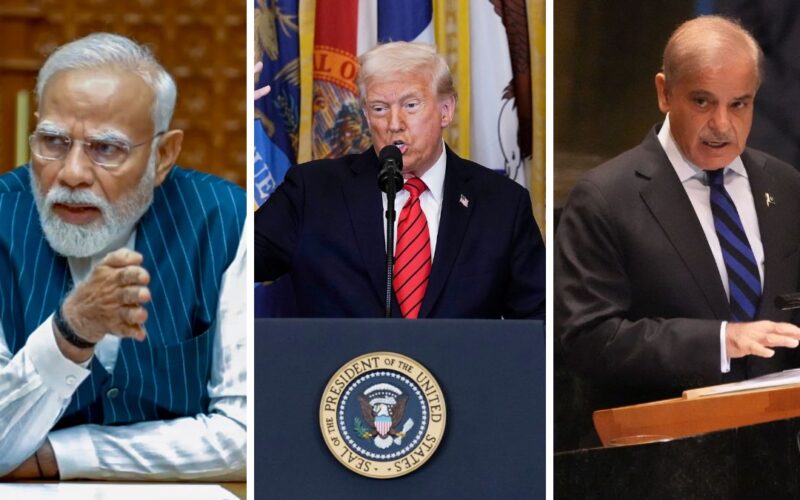Washington, D.C./Islamabad (National Times) Facing increasing global isolation over its failure to curb terrorism, Pakistan has now turned to former U.S. President Donald Trump in hopes of reviving stalled dialogue with India. Pakistani Prime Minister Shehbaz Sharif, speaking at an event hosted by the U.S. Embassy in Islamabad, praised Trump’s past involvement in reducing tensions and urged Washington to facilitate a comprehensive peace dialogue between the two nuclear-armed neighbours.
“President Trump played a significant role in de-escalating tensions between India and Pakistan,” Sharif stated, echoing sentiments expressed earlier by former Foreign Minister Bilawal Bhutto Zardari. “If the U.S. was instrumental in maintaining the ceasefire, it would make sense for it also to help initiate broader dialogue.”
Bhutto Zardari, speaking previously on the issue, had claimed that Trump “rightly deserves credit” for allegedly helping broker the 2021 ceasefire agreement between Indian and Pakistani border forces. “On at least 10 occasions, he’s claimed that credit—and in our view, rightfully so,” Bhutto had said.
India Rejects Mediation, Reaffirms Bilateral Approach
India, however, has consistently denied any third-party involvement in ceasefire agreements and remains firm in its policy of rejecting external mediation in bilateral issues with Pakistan. Responding to the latest comments from Sharif, Indian leaders strongly refuted the idea of involving any foreign powers in Indo-Pak diplomacy.
Congress MP Shashi Tharoor, leading an all-party Indian delegation to the United States, delivered a blunt rebuttal: “India has always maintained that talks cannot happen with a gun pointed at our head. If your neighbour is sending terrorists across the border and then asking for dialogue, it’s like someone unleashing Rottweilers on your children and then asking you to shake hands.”
Tharoor reiterated India’s long-standing view that Pakistan must first dismantle its terror infrastructure before any form of dialogue can be considered.
Pakistan’s “Victim” Narrative Dismissed
Tharoor also hit out at Pakistani claims that it too is a victim of terrorism. “They say they’ve lost more lives to terrorism than India. We respond—whose fault is that?” he asked. Quoting former U.S. Secretary of State Hillary Clinton, he added, “You can’t keep snakes in your backyard and expect them to only bite your neighbour.”
He pointed to Pakistan’s internal terror troubles, including attacks by the Tehrik-i-Taliban Pakistan (TTP), as consequences of its long-standing support for militant groups. “Pakistan needs to look inward and reflect before pleading innocence on the world stage,” he concluded.
Growing Global Consensus
Internationally, there appears to be dwindling sympathy for Pakistan’s dual narrative of fighting and fostering terrorism. The country’s appeal for American intervention is being seen by many as a last-ditch effort to remain diplomatically relevant in the region.
India, meanwhile, continues to assert that the path to peace lies not in foreign mediation, but in Pakistan taking concrete action to end cross-border terrorism—a precondition New Delhi has stood by for years.

